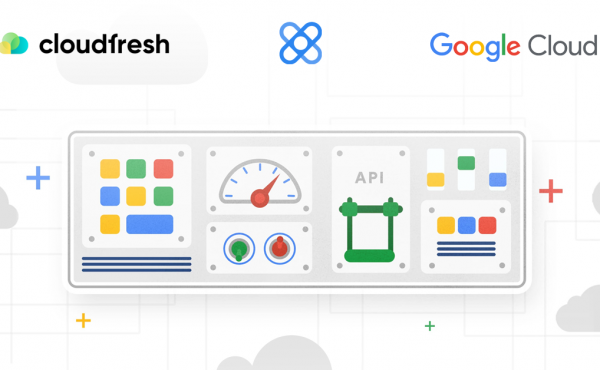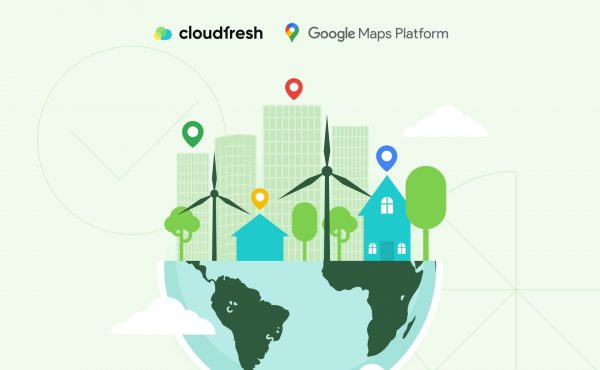Google Workspace for Healthcare: 3 Ways to Reduce IT Costs and Increase Employee Engagement
The Sky’s the Limit: Benefits of Cloud Computing in Healthcare
- Benefits of Cloud Computing in Healthcare: Real Cases

- About Us
One can compare the invention of computers to the discovery of penicillin: both have had profound impacts on human life-saving. Just as penicillin revolutionized medicine in the 20th century, the advent of computers—and more specifically, cloud computing—has transformed modern healthcare.
Cloud computing for healthcare has not only sped up medical research and vaccine development. What it did was reshape how the care itself is delivered and managed. During the COVID-19 pandemic, the impact of cloud computing on healthcare was so huge that researchers, pharmaceutical companies, healthcare providers, and government agencies were all able to pool resources, share findings in real time, and coordinate supply chains.
Without the cloud, it would’ve been painfully slower to develop and distribute the jabs, as well as to deploy contact tracing apps. Bottom line? Even greater loss of life. In contrast to the 1918 pandemic, where scientific progress was slowed by limited access to data and resources, cloud computing gave us the edge to combat COVID-19 in a hyper-connected, globalized world. At this point, it’s honestly hard to even begin to imagine the potential for AI-driven advancements in diagnostics, treatment, and patient care. The future of healthcare could see treatments tailored to individual patient needs with a level of precision never before possible.
McKinsey estimates that cloud computing could bring between US$100 billion and US$170 billion in annual value for healthcare companies by 2030. What are the exact benefits of cloud computing in healthcare, then?
Benefits of Cloud Computing in Healthcare: Real Cases
Instead of making any speculations on how great and innovative it is to adopt cloud computing in healthcare, let’s move straight to the practical side of things.
HCA Healthcare
The rising burden of administrative work and complex information exchange increasingly shifts healthcare providers’ focus from their primary mission—patient care. To change things, HCA Healthcare piloted generative AI within clinical workflows.
Nurses and other healthcare providers spend way too much time on administrative tasks such as updating patient records, documenting care, and relaying information between shifts. While these duties are surely a must, complicated communication among healthcare teams often leads to inefficiencies, increased stress, and the risk of human error—particularly in high-pressure environments.
HCA has started using a mix of Vertex AI, BigQuery, and Looker Studio to automate key admin tasks. The system looks at patient charts and generates real-time hand-off tools for nurses, which they can access on a smartphone. These tools create a detailed timeline of patient care over the previous 12 hours and produce critical insights and trends, which allows nurses to quickly assess a patient’s condition and determine the next steps in care.
At the end of the day, AI enables them to focus on patient care rather than time-consuming data entry or interpreting complex handover notes. The bottom line? Patient outcomes get better, and healthcare providers see less of their staff burned out.
But HCA understands that with no infrastructure and high-quality data, the initiative will never be successful in the way it wants it to be. That’s why the company says how important it is to invest in cloud computing, Big Data, and advanced AI. When paired with accurate, all-encompassing data, generative AI can help healthcare providers serve patients in a more personalized, engaging, and effective way while also opening up new possibilities across the healthcare industry.
This pilot represents the first step in HCA’s visionary goal of creating an environment where broad cloud technology in the healthcare industry is fully integrated into compassionate, high-quality care. The long-term goal is to ‘untie’ healthcare workers from their workstations and let them spend more time with the patient.
American Cancer Society
Breast cancer is a disease that has multiple subtypes needing distinct approaches to be diagnosed and treated. Without understanding these subtypes at a deeper level, it is simply impossible to arrive at advanced treatment strategies. The American Cancer Society, a leading research organization, is speeding up its understanding of breast cancer pathology via advanced machine learning techniques.
Research in this field is mainly complicated by the sheer complexity and volume of data associated with tissue analysis. The American Cancer Society overcame this challenge by using machine learning to accelerate the analysis of a massive dataset: 1,700 breast cancer cases, each with associated tissue samples, accumulated over 20 years. The challenge was compounded by the enormous size of the image data, with each tissue sample image ranging from 5 to 10 gigabytes.
The American Cancer Society turned to Google Cloud solutions, specifically for unsupervised clustering, to speed up its research. By applying multiple layers of algorithms, it was able to process the enormous dataset in just three months—talk about the benefits of cloud computing in healthcare! This is something that would have taken pathologists years to accomplish. In that regard, the machine learning models made it possible to identify underlying patterns within breast tissue samples in a fraction of the time.
The unsupervised clustering approach enabled the American Cancer Society to ask the machine to group the data (i.e., tiles from the tissue images) into clusters based on inherent similarities. Remarkably, some clusters that the machine generated aligned with existing knowledge of breast cancer subtypes, validating the model’s effectiveness. On the other hand, some of the clusters presented groupings that were previously unknown and, therefore, not quite explainable by existing pathology knowledge. The discovery just showed how much potential machine learning has in uncovering hidden patterns that could lead to new insights in breast cancer research.
When selecting a cloud provider for such an ambitious project, the American Cancer Society placed significant importance on privacy and compliance with regulations and other federal laws governing healthcare data (e.g., the Health Insurance Portability and Accountability Act). Eventually, Google’s cloud infrastructure helped the American Cancer Society scale up its computational resources, store massive amounts of data, and keep PII (personally identifiable information) private throughout the research process.
Moderna
Managing clinical trials requires collecting and going over huge amounts of data coming from all kinds of sources. Typically, clinical trial data sits across different platforms, so clinicians and researchers have to manually bring information together piece-by-piece—often using tools like Excel. The approach took too long, was prone to errors, and made it difficult to gain a clear, real-time view of trial progress. To remove these inefficiencies once and for all, Moderna implemented Looker. What it tried to achieve was improved data integration, decision-making, and diversity.
Having brought together internal datasets—such as clinical operations data and patient demographics (including race, gender, age, and risk factors)—along with external data like epidemiology and census information, Moderna created a single-pane-of-glass view. One of the major benefits of cloud computing in healthcare was Looker’s ability to track and improve diversity within clinical trials. Achieving diversity in trial participants—across race, gender, age, and other demographic factors—is critical for results to be accurate and widely applicable.
Moderna’s Data Science team even went as far as to develop custom metrics around racial diversity, enabling the company to measure trial performance in relation to diversity goals at both regional and site levels. Dashboards give insights into how each site performs against peers and regional benchmarks; these insights are then shared across multiple teams.
Moderna can now make deliberate, informed decisions to prioritize diversity in its clinical trials, which translates to more representative studies and addresses long-standing gaps in clinical trial diversity. Teams can now review trial enrollment metrics and dashboards frequently and swiftly spot areas requiring attention and prompt corrective actions. Thanks to this new level of visibility, Moderna researchers also benefit from optimized recruitment efforts by sharing data internally with leadership and recruitment teams.

About Us
Cloudfresh is a Global Google Cloud Premier Partner.
- Explore custom GCP solutions with hands-on expertise that tailors every aspect to your unique workloads and project ambitions. Our team is here to help you ideate, configure, test, and fine-tune your cloud environment to perfection.
- Take control of your future with Google Cloud consulting services which include—but are not limited to—an in-depth audit and a strategic plan for your existing infrastructure, ensuring you’re primed and ready for whatever comes next.
- Get the most out of your AI efforts with personalized consulting and expert technical support from certified professionals who know how to leverage every advantage it offers.
- Make your migration away from on-premises unclouded with lightning-fast deployment, minimal bandwidth impact, and a laser focus on efficiency to keep everything running smoothly.
- Optimize your budget with advanced tools that bring your total cost of ownership (TCO) down and bring cost-saving opportunities to the surface—giving you more value from your investment in Google Cloud.
- Join forces with a powerhouse team of specialists in Architecture, Data Engineering, Security, Networking, DevOps, and App Development to design cloud solutions for healthcare that align perfectly with Google Cloud’s best practices and deliver exactly what you need.















